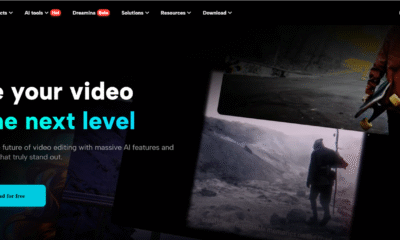Tech
The Future of Litigation: AI, Automation, and the Legal Tech Shifts of 2025

Emerging technologies and artificial intelligence (AI) are revolutionizing the legal field by altering the way cases are formulated, debated, and decided. These developments are expediting the litigation process while posing significant ethical, data, and fairness-related queries. Here are some things that legal professionals should be aware of as 2025 draws near.
More than ever, AI tools are being used in litigation strategy. Advanced analytics is being used by attorneys to search through enormous legal databases, identify patterns, and create stronger arguments more quickly. By evaluating the possible results of various legal tactics, predictive modeling helps litigators better understand risk and opportunity. Data-driven law is entering a new era. Litigation crowdfunding is another fascinating area gaining traction in the legal world, offering plaintiffs a new way to fund their legal battles through public contributions.
AI is significantly improving the discovery phase, which was previously one of the most expensive and time-consuming aspects of litigation. Large amounts of documents can now be combed through by machine learning to find important pieces of evidence, uncover hidden patterns, and identify discrepancies. This is made even more efficient by natural language processing (NLP), which allows for more intelligent, semantic searches rather than merely keyword scans. The outcome? less billable hours and a more accurate discovery.
Routine administrative duties like processing filings, scheduling, and drafting standard documents are also being replaced by AI. Law firms can free up lawyers to concentrate on more complex tasks like strategy development, client engagement, and trial preparation by automating these routine tasks.
AI has its share of issues, just like any other potent technology. It is necessary to address concerns like algorithmic bias, data privacy, and the opaqueness of decision-making procedures. Making sure AI is used in a way that is morally righteous, equitable, and transparent is crucial as it begins to influence legal outcomes more and more.
What to Expect in 2025: Five Key Trends
Here are five legal technology trends that are expected to be significant in 2025 due to the ongoing rapid innovation:
1. AI-Driven Mediation and Arbitration: More online dispute resolution systems will likely use AI to speed up negotiations and simplify resolutions.
2. Smart Contracts and Blockchain Evidence: Blockchain technology will be more important in protecting digital evidence and implementing smart contracts, which will make it more difficult for records to be tampered with.
3. Litigation Analytics Tools: Platforms that examine the actions of judges, the results of cases, and the tactics of opposing counsel will be essential for litigation teams.
4. Using generative AI in courtrooms: These tools could be used to recreate events or simulate arguments, providing new visual aids for presenting and visualizing cases.
5. Automated Compliance Monitoring: AI-driven compliance solutions will assist businesses in keeping an eye on their legal responsibilities in a proactive manner.
Artificial intelligence is already playing a transformative role in key areas of the legal profession, particularly in legal research and the eDiscovery process. With proper oversight from experienced legal professionals, AI tools like ChatGPT can dramatically speed up the review of large volumes of documents, accurately extract relevant details, and support more informed and strategic decision-making. These technologies are helping legal teams operate more efficiently, allowing them to focus their time and energy on higher-value tasks such as analysis and client advocacy.
However, it’s important to recognize that even the most advanced AI systems are not without limitations. These tools depend heavily on human expertise to be used effectively. Legal professionals must guide and supervise AI applications, ensuring they are used responsibly and ethically. Human judgment remains essential in interpreting AI-generated insights, making context-based decisions, and safeguarding against potential misuse or errors.
The integration of AI into litigation processes is not just a temporary trend—it signals a deeper, structural evolution in how legal work is conducted. While these technologies promise speed and precision, they must be handled with care and accountability. As we move through 2025, the legal field must strike a careful balance between innovation and tradition, ensuring that the adoption of AI enhances—not undermines—the core values of justice, fairness, and professional integrity.
Sources:
Navigating the New AI Landscape: What Legal Teams Need to Know for 2025


























